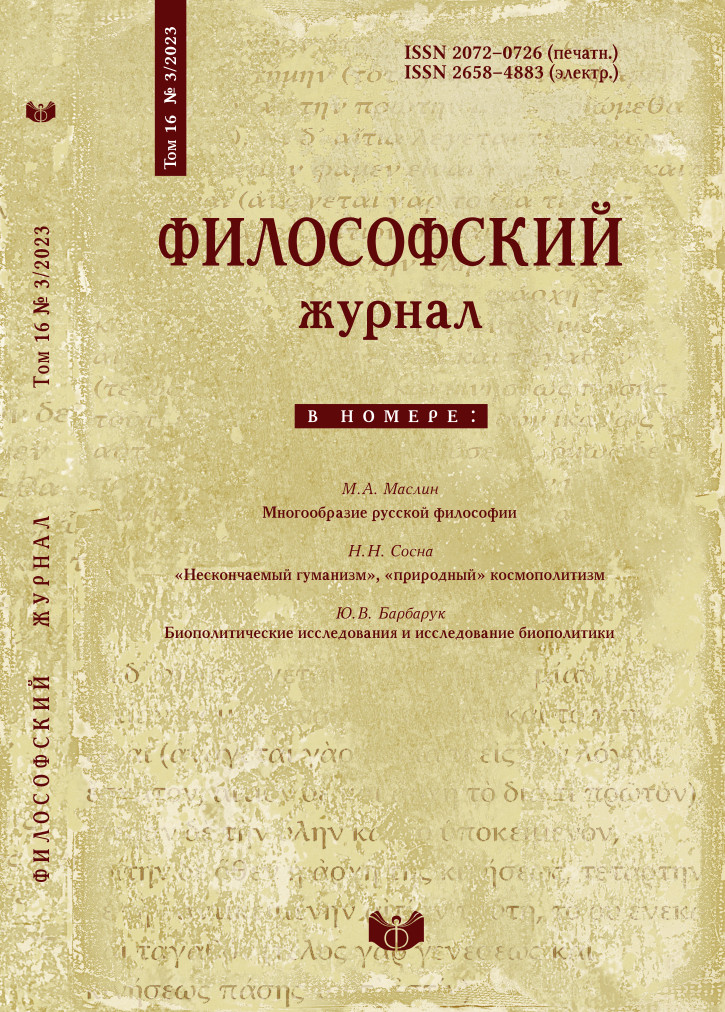On the way to overcoming the gaps: national philosophical heritage in the modern context
DOI:
https://doi.org/10.21146/2072-0726-2023-16-3-34-40Keywords:
Russian philosophy, Russian idea, sobornost’, “The return of names” period, Russian philosophical communityAbstract
The frequent opposition of “philosophy in Russia” and “Russian philosophy” is considered by the author as a counterproductive dilemma that prevents the natural interaction of the cultural and historical originality of national philosophizing and world philosophical culture. The most important point in this regard is the need of depoliticization and deideologization of discussions about the Russian philosophical heritage. One of the key problems in this regard is the circumstance that the contemporary history of Russian philosophy continues to use the self-description language of Russian philosophy of the first half of the 20th century. It causes, on the one hand, the uncritical use of philosophical ideas, categories, concepts of the past in the modern cultural and historical context, on the other hand, the fundamental rejection of work with this conceptual apparatus. The most characteristic examples in this regard are the concepts of “sobornost’” and so called “Russian idea”. The inclusion of the Russian philosophical heritage in the subject field of modern philosophy is hampered, in turn, by a number of circumstances caused both by the fragmentation of modern philosophical knowledge and the blurring of its disciplinary boundaries, and by the specifics of the formation of the Russian professional philosophical community. Historical reasons have necessarily led to a significant gap between the Russian philosophical heritage of the 19th–20th centuries and the conceptual and methodological space of modern philosophical thought. Awareness of this gap, in turn, caused a kind of corporate rift within the Russian philosophical community – its division into groups dealing with issues that claim to be relevant, and a community focused on the study of the Russian philosophical heritage. Overcoming this conceptual gap and corporate rift turns out to be necessary prerequisites for the genuine actualization of the Russian philosophical heritage in modern conditions.






